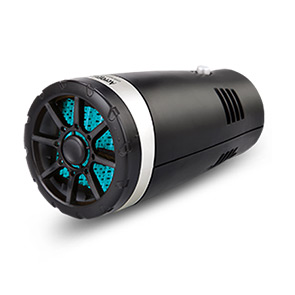trailer handbrake cable
Understanding Trailer Handbrake Cables Essential for Safe Towing
When it comes to towing trailers, safety should be your top priority. One of the critical components that play a pivotal role in ensuring safe braking while using a trailer is the handbrake cable. This seemingly simple part is crucial for the proper functioning of the trailer's braking system and can significantly affect your towing experience. In this article, we will delve into the purpose of trailer handbrake cables, their components, common issues, and tips for maintenance.
What is a Trailer Handbrake Cable?
A trailer handbrake cable is a steel cable that connects the handbrake lever to the brake mechanism on the trailer. When the driver pulls the handbrake lever, the cable tightens, which, in turn, activates the brakes on the trailer. This mechanism is essential in preventing the trailer from rolling away when parked on an incline or when the towing vehicle is detached.
Importance of the Handbrake Cable
The handbrake cable is designed to provide an additional layer of safety, particularly in instances where the primary braking system may fail. By using the handbrake, you can secure your trailer when it is stationary, ensuring it remains in place until you are ready to continue your journey. This is especially important in hilly terrains, where the risk of the trailer rolling away is significantly higher.
Components of a Trailer Handbrake System
The trailer handbrake system comprises several components, with the handbrake cable being central to its operation. Here are the primary components involved
1. Handbrake Lever Usually located in the towing vehicle, the handbrake lever is what the driver pulls to engage the trailer brakes.
2. Cable Assembly This includes the main handbrake cable, which runs from the lever to the trailer's brake assembly, and possibly a series of smaller cables that distribute force to individual brake components.
3. Brake Assembly Depending on the trailer type, this may include drum brakes or disc brakes. The brake assembly is what actually slows down the trailer when the handbrake is engaged.
4. Adjusters and Connectors These components help to maintain the appropriate tension and ensure that the cables are connected properly to transmit the force from the handbrake lever.
Common Issues with Handbrake Cables
Like any mechanical system, trailer handbrake cables can experience wear and tear over time
. Some common issues to look out for includetrailer handbrake cable

1. Fraying or Damage The steel cable can become frayed or damaged due to rust or corrosion, making it less effective at transmitting force.
2. Tension Problems If the cable becomes loose or improperly adjusted, it may not engage the brakes effectively. This can result in inadequate braking power when the handbrake is pulled.
3. Binding or Jamming The cable can sometimes get stuck in its housing, preventing it from moving freely. This can lead to issues when trying to engage or disengage the brakes.
4. Connections Loose or rusted connections can hinder the performance of the handbrake system, potentially leading to a complete failure.
Maintenance Tips
To ensure the reliability and longevity of your trailer handbrake cable, regular maintenance is essential. Here are some tips
1. Inspect Regularly Check the condition of the handbrake cable and its connections every few months or before long trips. Look for fraying, rust, or any signs of wear.
2. Keep it Clean Ensure that the cable and its housing are free from dirt, mud, and debris that could lead to binding or corrosion.
3. Lubricate Components Use a suitable lubricant on moving parts to ensure that they operate smoothly. This can help prevent premature wear.
4. Adjust Tension If you notice that the handbrake does not seem to engage fully, adjust the tension of the cable according to the manufacturer’s specifications.
5. Replace When Necessary If the cable shows signs of significant wear or failure, replace it immediately to avoid potential hazards while towing.
Conclusion
In summary, the trailer handbrake cable is a critical component that should not be overlooked when it comes to trailer safety. Understanding its purpose, monitoring its condition, and conducting regular maintenance ensures that your towing experience remains safe and secure. A well-functioning handbrake system gives you peace of mind, allowing you to focus on the journey ahead rather than worrying about your trailer's braking capabilities. Always remember that a little preventive care goes a long way in ensuring your safety on the road.
-
Upgrade Your Control with Premium Throttle CablesNewsAug.08,2025
-
Stay in Control with Premium Hand Brake CablesNewsAug.08,2025
-
Experience Unmatched Performance with Our Clutch HosesNewsAug.08,2025
-
Ensure Safety and Reliability with Premium Handbrake CablesNewsAug.08,2025
-
Enhance Your Vehicle with High-Performance Clutch LinesNewsAug.08,2025
-
Elevate Your Ride with Premium Gear CablesNewsAug.08,2025
